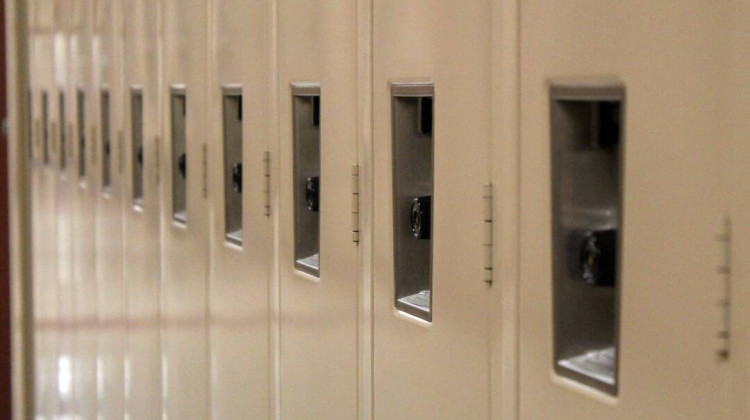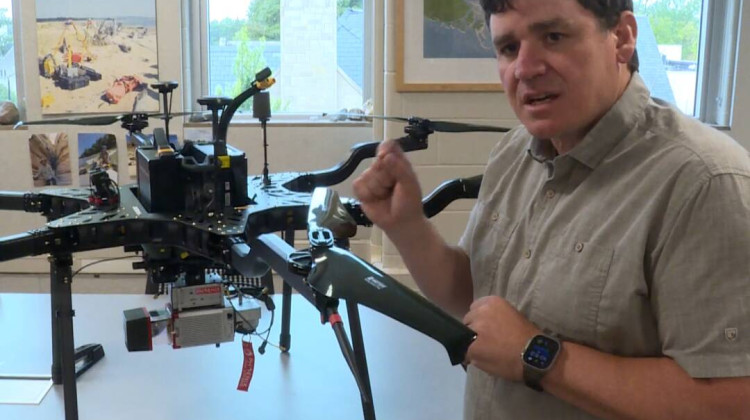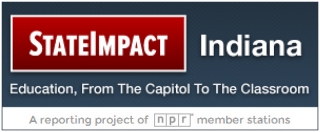
Rep. Ed DeLaney (D-Indianapolis) argues against the House Republicans proposed 2017-19 budget on Thursday, Feb. 23 at the Indiana Statehouse.
Indiana House Democrats
This week marked the last committee meetings of the first half of the session, as both chambers scramble to wrap up any bills they want to move forward into the second half of the session. Monday and Tuesday are the last days both chambers can approve a bill if they want it to move forward. The legislature will then take the rest of the week off and return the following Monday.
Appointed State Superintendent Gets Surprising Vote
A bill that would change the state superintendent position from an elected official to one appointed by the governor was surprisingly shot down in the Senate education committee this week. Republicans have long advocated to make the position appointed, so it was surprising when 17 Republicans voted against the bill.
Sen. Luke Kenley (R-Noblesville) voted against the bill and says it could result in major policy swings each time a new governor enters office.
“In the long run, that will be more harmful to education, than some kind of stable, checks and balances, you have to fight each other over this to get a result done,” Kenley says.
Later that day, the House passed a similar version of the bill, which will be sent to the same committee that killed the Senate version.
A Senate rule says a bill that is similar in language to a defeated bill may not be heard again in the Senate. Senate President Pro Tem David Long, R- Ft. Wayne, says the House bill could still come into the Senate if someone dramatically changed the language.
Additional Pre-K Funding Package Reduced By $7 Million
The current pre-K pilot program, which served around 3,700 in the first two years in five counties, costs $10 million a year. Many Republicans, including Gov. Eric Holcomb, Democrats and business leaders asked for a doubling of that amount. An amendment authored by Kenley reduced the increase to $3 million.
A similar bill is still alive in the House.
Students With Disabilities Benefit From First 2017 Bill Signed Into Law
A proposal that eases transportation for students with disabilities is one of a few bills that has instantly garnered bipartisan buy-in and momentum.
House Enrolled Act 1507 lets groups that serve developmentally disabled students rent public school buses for private events or trips that are not state-sponsored. For example, a team of Special Olympic athletes could now use the bus from their local district to travel for a competition. This was not allowed before, as law required only “state-supported agencies” to use a public school bus.
“This bill moved to my desk quickly with bipartisan support, because it is a common-sense, quick fix to an existing law that gives Indiana schools the flexibility they need to better serve students with disabilities,” Gov. Holcomb said in a statement.
The law, which went into effect Thursday after Holcomb signed it, was authored by Rep. Ed Soliday (R-Valparaiso) and sponsored by Sen. Ed Charbonneau (R-Valparaiso).
Dems’ Last Ditch Amendments To House Budget Fail
House Democrats have fought almost all legislative proposals this session that would give charter schools, virtual schools and private schools using vouchers from receiving any new financial or accountability benefits.
Indianapolis Democratic Reps. Greg Porter and Ed DeLaney offered up a slew of education changes Thursday on the House floor as the 2017-2019 budget was debated.
They called for: cutting both the $52.6 million funding for ISTEP and $25 million for the charter school grant program; shutting down the State Charter School Board; and retaining tuition funding for virtual schools at 90 percent per student instead of the proposed 100 percent in the budget bill.
DeLaney urged lawmakers to cease the ISTEP and the next generation ILEARN exam during the past two months.
On Thursday, these amendments failed mostly along party lines. On Monday the House will vote to approve the budget.
‘Prayer In School’ Bill Gains Support
If made into law, schools would have to provide opportunity for students to express their own religious beliefs during events where other students are speaking. The Department of Education and state attorney would be required to provide a “model policy” on these issues for schools to adopt.
 DONATE
DONATE









 Support WFYI. We can't do it without you.
Support WFYI. We can't do it without you.